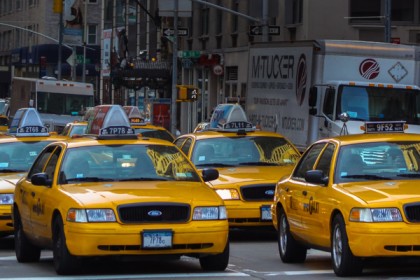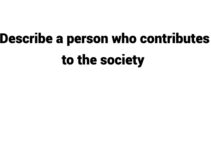Table of Contents
Describe a Time When You Picked Up An Item That Someone Else Lost

Cue Card
You should say:
- What the item was
- When and where you found it
- What you did after finding it
- How you felt about the experience
Sample Answer 1
One incident that comes to mind when i picked up an item that someone else had lost was when I found a smartphone in a taxi. It was quite a common occurrence, as people often leave their belongings behind in taxis.
I remember finding the item on the seat of the taxi one late evening in the downtown area. It was a busy time, and I noticed it just as I was about to get out of the cab. Without a second thought, I picked it up and decided to take responsibility for it.
After finding the lost item, I quickly checked the phone to see if there was any information about the owner. Luckily, there was a contact number available, so l immediately called it. I explained the situation to the owner and arranged a time and place to return the item.
The feeling I had about this experience was one of satisfaction. I felt good knowing that I was able to help someone in need. Losing a phone can be a stressful and inconvenient situation, so being able to return it to its rightful owner brought a sense of relief.
It also reminded me of the importance of being responsible and considerate towards others. It’s easy to overlook someone else’s lost item, but taking the initiative to pick it up and return it can make a significant difference in someone’s day. It made me realise the impact a small act of kindness can have on someone’s life.
Overall, the experience of picking up and returning a lost item was a positive one. It reinforced my belief in the power of empathy and reminded me of the importance of helping others when we can. It was a simple gesture, but it made me feel good knowing that I played a part in making someone’s day a litle better.
Sample Answer 2
I remember a time when I found a lost mobile phone. It happened while I was commuting in a taxi. As I got into the back seat of the taxi, I noticed a phone lying next to me. I immediately realized that the previous passenger must have accidentally left it behind.
Without hesitation, I picked up the phone and checked the lock screen for any contact information. Unfortunately, the phone was locked, and I couldn’t directly identify its owner. However, I knew I had to try and return it. Interestingly, the lock screen picture seemed to be a picture of the owner, who was soooooo handsome.
I took the phone with me and waited for the owner to call. After an hour, the boy who lost the phone phoned me. I explained the situation, and we agreed to meet at a café to return the phone. I provided a description of where I found it and the time of my discovery. He thanked me very much for the huge favour i did and treated me to a thank-you coffee. Actually, we had a pleasant conversation at the coffee shop and exchanged contact information for more coffees.
I felt relieved that I had found the owner and returned the lost phone. It was important for me to take action and help someone retrieve their valuable possession, as I understood how distressing it can be to lose a mobile phone. In this situation, picking up the lost phone and making an effort to return it was the right thing to do. It is crucial for all of us to be mindful of others and act with integrity when we come across lost items, especially valuable ones like mobile phones.
And who knows, it might even lead to unexpected romance – I mean, yes, we are now boyfriend and girlfriend.
Part 3
1. Should parents teach their children to return things lost by others?
Yes, parents should teach their children to return things lost by others. Teaching children about honesty, empathy, and responsibility from a young age can help instill a sense of integrity and kindness. By emphasizing the importance of returning lost items to their owners, parents can help shape their children’s moral compass and teach them to be good members of society.
2. Why do some people enjoy collecting antiques or second-hand items?
There are several reasons why some people enjoy collecting antiques or second-hand items. For many, collecting antiques provides a connection to the past and a sense of nostalgia. Antiques often carry a historical and cultural significance, allowing collectors to appreciate the craftsmanship and artistry of earlier eras. Collecting antiques can also be seen as a form of treasure hunting, as individuals search for unique and rare items that hold value. The thrill of finding a hidden gem or uncovering a piece of history can be incredibly rewarding.
3. What kind of people tend to lose things more often than others?
I think there’re several reasons that some people tend to lose things more often than others. For example, individuals who are more forgetful or easily distracted may be prone to misplacing their belongings. And, individuals who are disorganized or have a cluttered living or working space may have a higher likelihood of losing things. It is also possible that individuals who are constantly on the move or have a busy lifestyle may be more prone to losing items due to their fast-paced nature.
4. What kind of things do people often lose?
Everyday essentials like keys, wallets, and mobile phones are frequently misplaced by people. These items are small and easily blend into our surroundings, making them prone to being misplaced or forgotten. Aside from these everyday items, people also tend to lose things like glasses and umbrellas. Glasses are often taken off and set down absentmindedly, only to be forgotten about later. Similarly, umbrellas are frequently left behind in public places such as restaurants, cafes, or public transportation.
5. Why do some people find lost things easier than others?
Some people may find lost things easier than others due to their observational skills, attention to detail, and ability to navigate their surroundings effectively. Individuals who are naturally observant and have a keen eye for detail may notice misplaced items more easily. They may have a knack for quickly scanning their environment and spotting objects that are out of place. And, some people may have developed strategies or habits that help them locate lost items more efficiently. They may have a systematic approach to retracing their steps, searching in logical places, or utilizing tools such as lists or reminders to keep track of their belongings. This level of organization and preparedness can make it easier for them to locate lost things.
6. What do you think are the reasons why some people pick up lost things and don’t give them back?
I guess there can be various reasons why people don’t return lost things. Some individuals may prioritize their own needs or find it inconvenient to make an effort to return lost items. Others may have a moral compass that is more lenient towards keeping found items for personal gain. But the most common reason for this behaviour I think could be a lack of awareness or empathy towards others. People may not realize the importance or sentimental value that the lost item holds for its owner. It is important to develop a deeper understanding and consideration for the emotions and perspectives of those around us.
Some IELTS Speaking part 2 cue-cards you may like :
- IELTS Speaking Part 1 From January to April 2024
- IELTS Speaking Part 2 From January to April 2024
- (2024) Describe a Time You Had To Finish Something Quickly
- (2024) Describe a Trip You Were Looking Forward To But Was Delayed
- (2024) Describe a Movie/Film That You Felt Strongly About
- (2024) Describe A Photo That Makes You Feel Happy
- (2024) Describe An Activity That Made You Feel Tired
- (2024) Describe a Party That You Enjoyed
Credits
Image : Photo by Nick Fewings on Unsplash


